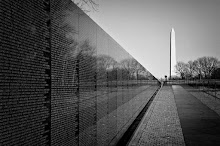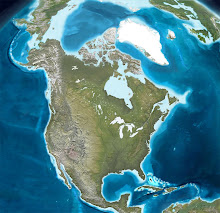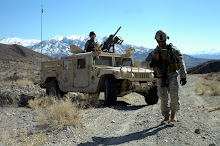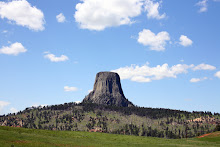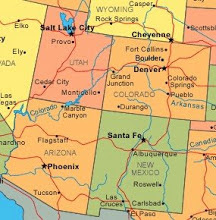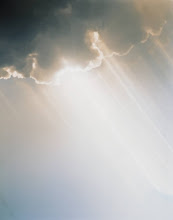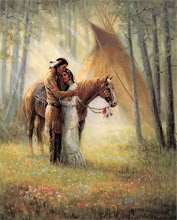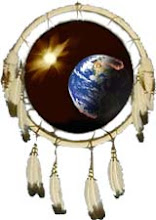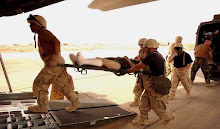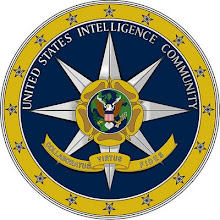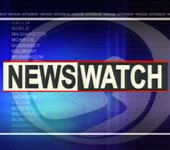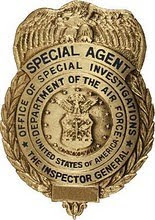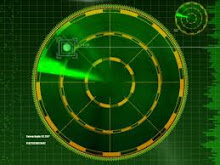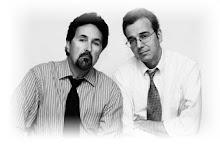By Steve Hammons
Miami University of Ohio in Oxford, located in southwestern Ohio near the Indiana state line, changed its mascot name from "Redskins" to "RedHawks" in 1997 after the Miami Tribe of Oklahoma made a name-change request of the university.
The university's decision to change the name sparked debate, according Miami University’s Director of Miami Tribe Relations Kara Strass.
In a July 13, 2020, article from ABC9 News in Cincinnati under the headline, “Miami University was decades ahead in dropping Redskins nickname,” Strass was quoted as saying, “I think this was a very controversial decision. I don’t think it was one that was made lightly."
She noted, “There was a lot of alumni pushback to people who saw Redskins as part of their Miami identity, part of their experience of going to school at Miami, and felt like I think something had been taken away from them. It’s been pretty controversial ever since then.”
Miami University was founded in 1809 – not long after many native people, including the Miami, Myaami or Myaamia of southwestern Ohio and Indiana, and the Shawnee of Ohio and Kentucky had been pushed out of the region by force, after much bloodshed and loss of their lands.
MYAAMIA CENTER
Miami U. is in an area that was an interface between the Miami people to the west and northwest, and the Shawnee tribe who lived to the east in central and southern Ohio and Kentucky, south of the Ohio River, or as it reportedly was called then, the “Ohi yo” or “Ohiyo.”
Today, Miami U. is home of the Myaamia Center, begun in 2001 as the Myaamia Project, with wide-ranging activities in partnership with the Miami Tribe of Oklahoma. That tribe is the only U.S. government-recognized Miami tribe, though there is also a Miami tribal group in Indiana.
According to their webpages on the Miami U. website, “The Center focuses on conducting in-depth research to assist the Miami Tribe’s educational initiatives aimed at the preservation of language and culture.”
Additionally, “The Center also emphasizes exposing undergraduate and graduate students at Miami University to tribal efforts in language and cultural revitalization.”
Also on the Miami U. website, "The Myaamia Center is directly supported by both the Tribe and the University. Anyone committed to helping perpetuate Miami language and culture for future generations is welcome to participate."
The Myaamia Center describes its mission: “The Center, a Miami Tribe of Oklahoma initiative located within an academic setting, serves the needs of the Myaamia people, Miami University, and partner communities through research, education, and outreach that promote Myaamia language, culture, knowledge, and values.”
Relationships that have been established between Miami U. and the Miami Tribe of Oklahoma. “Over the years, a thriving and mutually enriching relationship has developed between the Miami Tribe of Oklahoma and Miami University.”
“Each activity, project, class, and visit is one piece of a much broader, continuously developing relationship,” the Myaamia Center webpages explain.
PAST, PRESENT, FUTURE
The center is involved in research and conferences. “The Myaamia Center's offices explore research on a breadth of topics, from language and education to cultural ecology.”
“We present our research regularly at events such as the Myaamiaki Conference. We also make our research available to members of the Miami Tribe community and the public, in many cases as free downloads.”
Also from the center’s webpages:
- 125 Myaamia students have enrolled at Miami University since 1996.
- 89% graduation rate for Myaamia students at Miami University as of 2017.
- In 2022, the Miami Tribe of Oklahoma and Miami University will celebrate 50 years of relationship building.
According to Cincinnati’s ABC9 News article, “The Miami Tribe formally asked the university to change its nickname and mascot in 1996. A year later, it did – to RedHawks.”
Miami U.’s Strass is quoted as saying, “That is a first step, and that there is so much more work to be done, before people truly understand what it means to be a native person, to honor native communities.”
The article explained, “At Miami, Strass says without the name change a lot of what’s happening now, like the creation of the Myaamia Center and a program that’s bringing 30 tribal students to attend school there this fall, wouldn’t have been possible.”
- - -
For more information, visit their website: Miami
University’s Myaamia Center
(Related articles "Navy Research Project on Intuition," "Human perception key in hard power, soft power, smart power" and “Storytelling affects human biology, beliefs, behavior” are posted on the CultureReady blog, Defense Language and National Security Education Office, Office of the Undersecretary of Defense for Personnel and Readiness, U.S. Department of Defense.)
skip to main |
skip to sidebar

In the past 30 days, readers from approximately 40 countries or territories using about 20 languages visited the Joint Recon Study Group site.

To see more articles, scroll down the right-side column.

Steve Hammons

Articles from the Joint Recon Study Group site and Transcendent TV & Media site are included.
The Joint Reconnaissance Study Group is the San Diego-based, combined-service/agency, research-and-activities team in my novels "Mission Into Light" and sequel "Light's Hand." This site contains information of interest to the JRSG.
Home page: Joint Recon Study Group site
Readers from around the world visit this site.

In the past 30 days, readers from approximately 40 countries or territories using about 20 languages visited the Joint Recon Study Group site.
April 2021 threat alert: ‘Force protection’ for our troops now the responsibility of all Americans
First responders must deal with society’s problems, shortcomings, injustices every day
Could some UFOs be linked to Native American 'white stone canoe' legends, stories?
Wildland firefighter basic training available at community colleges, tech schools, training centers
‘Boomer remover’ coronavirus is bigger threat to WWII generation that saved the world
‘Black swan’ events that aren’t: Coronavirus, climate emergency, unidentified aerial phenonema
Reagan’s complete 1987 UN message on ‘alien threat’ overlooked: Grave danger here, now
Was Reagan briefed about UFOs and original ‘Day the Earth Stood Still’ movie?
My military draft lottery number was #165 during final Vietnam War years
“Keep On The Sunny Side,” by The Whites, from movie O Brother, Where Art Thou?”
Living along Ohio River for centuries, Native Shawnee called it ‘Kiskepila Sepe’ – ‘Eagle River’
Native American words around us: States, towns, rivers, lakes, terrain, plants, animals, military
Athens County, Ohio, was key spot when colonists, Redcoats fought Shawnee in 1774 battle
1787 Northwest Ordinance set course for Ohio, Indiana, Illinois, Michigan, Wisconsin, Minnesota
Smallpox-tainted blankets were 1763 bioweapon on northern Appalachian Mountains frontier
Diana Krall performs “Maybe You’ll Be There" live in Paris with Paris Symphony Orchestra 2001.
Books to read in 2021? Novels "Mission Into Light" and the sequel "Light's Hand"
Novel excerpt: Renew, prepare America with ‘Urgent Response Group’ for teens, young adults
Diana Krall performs “I Get Along” live in Paris with Paris Symphony Orchestra 2001.
Steve Tyrell sings “Give Me the Simple Life.”
Diana Krall performs “Love Letters” live in Paris with Paris Symphony Orchestra 2001.
Visit the article archives!

To see more articles, scroll down the right-side column.
Novel "Mission Into Light" overview on Amazon
Novel "Light's Hand" overview on Amazon
Adventures of the Joint Recon Study Group: Overview and synopses of activities and operations
Key chapter overviews: Points of interest in the novel "Mission Into Light"
Key chapter overviews: Points of interest in the novel "Light's Hand"
Multimedia rights available
English and foreign-language book rights, audio book and e-book rights for "Mission Into Light" and "Light's Hand" are available. Movie and TV rights are available.
I'm seeking agent representation for these works and rights.
Please contact Steve Hammons for more information at hammons55@gmail.com.
Feature film screenplay
I completed a feature film screenplay in 2006 based on “Mission Into Light” and “Light’s Hand” combining key elements of both novels.
The screenplay takes audiences into the adventures and discoveries of the Joint Recon Study Group and the relationships among team members, friends and associates as they explore leading-edge research and emerging transcendent developments.
I'm seeking agent representation for this screenplay.
.........................
I also wrote a TV series pilot script based on "Mission Into Light" and "Light's Hand" story. I'm seeking agent representation this script.
About the Author

Steve Hammons
About the Author
I was born and raised in southwestern Ohio near the Kentucky and Indiana borders, then went to college at Ohio University in the southeastern Appalachian region of the state near West Virginia.
I graduated with a dual major in communication (journalism focus) and health education (psychology focus) with a minor in pre-law.
Ohio U. is home to the respected Scripps College of Communication and E.W. Scripps School of Journalism.
I also completed two graduate-level courses in guidance counseling theory and method at Ohio U.'s College of Education, School of Applied Behavioral Sciences and Educational Leadership.
At the end of my undergraduate education at Ohio University, I moved to the beautiful American Southwest where I applied my education, continual training and and ongoing experience to related professional fields such as health care, journalism and special research areas.
My novels "Mission Into Light" and the sequel "Light’s Hand" are available in e-book and 6"x9" paperback from most online booksellers worldwide.
Readers review metaphysical-military-intelligence adventure novel ‘Mission Into Light’
My articles on DoD CultureReady blog, Defense Language and National Security Education Office
Transcendent TV & Media site
Past articles: Scroll down the right-side column for more articles.

Articles from the Joint Recon Study Group site and Transcendent TV & Media site are included.











